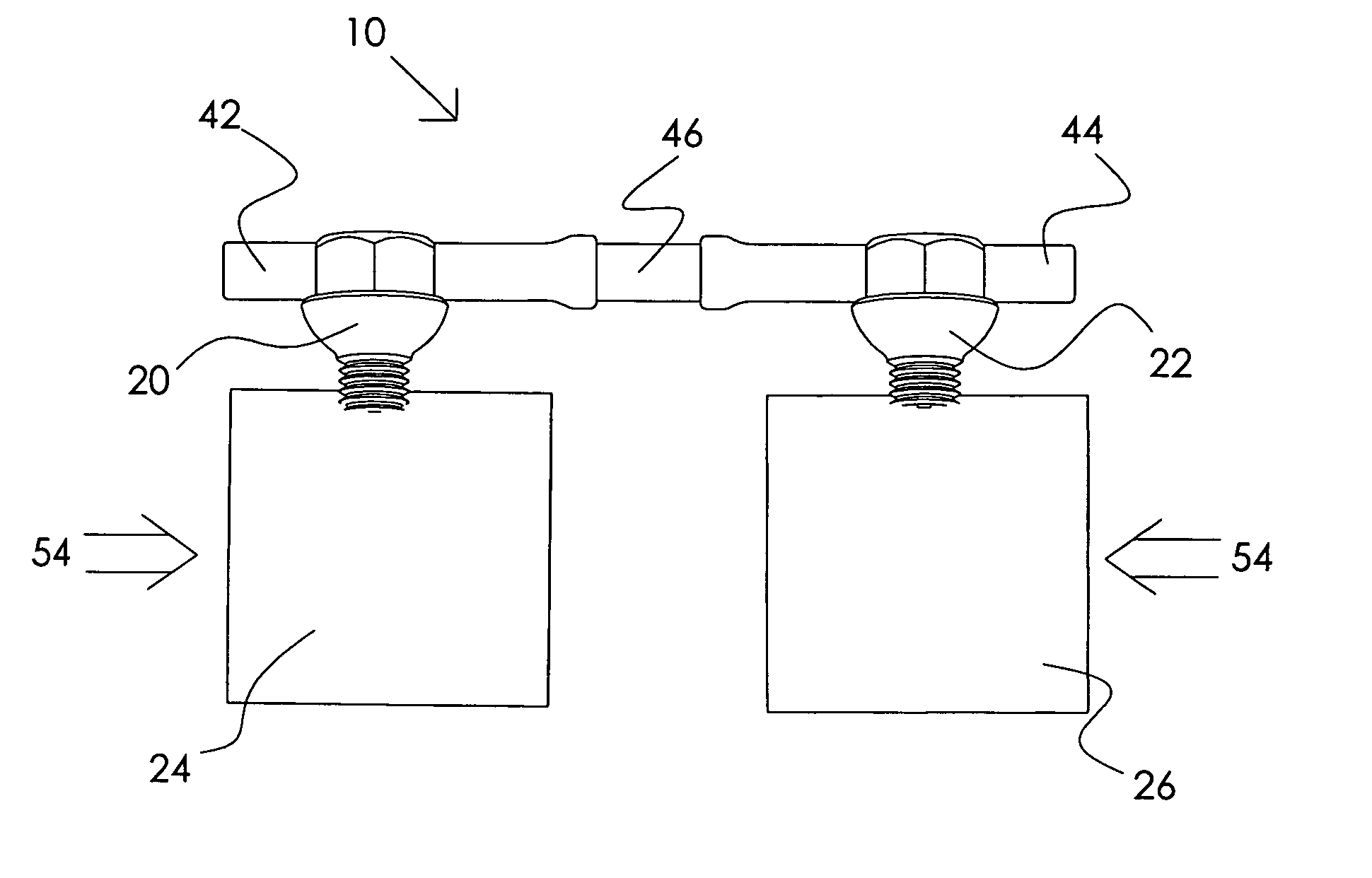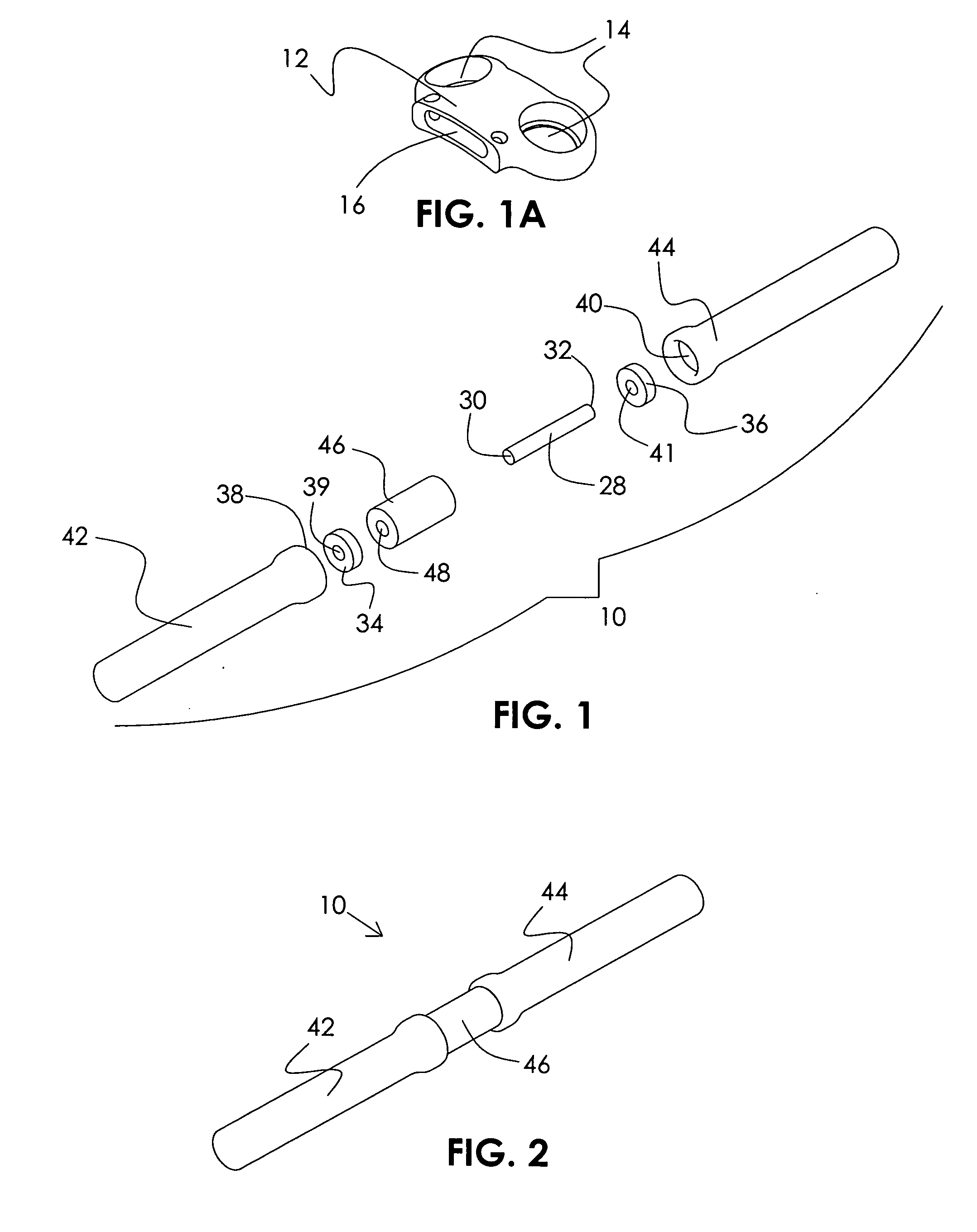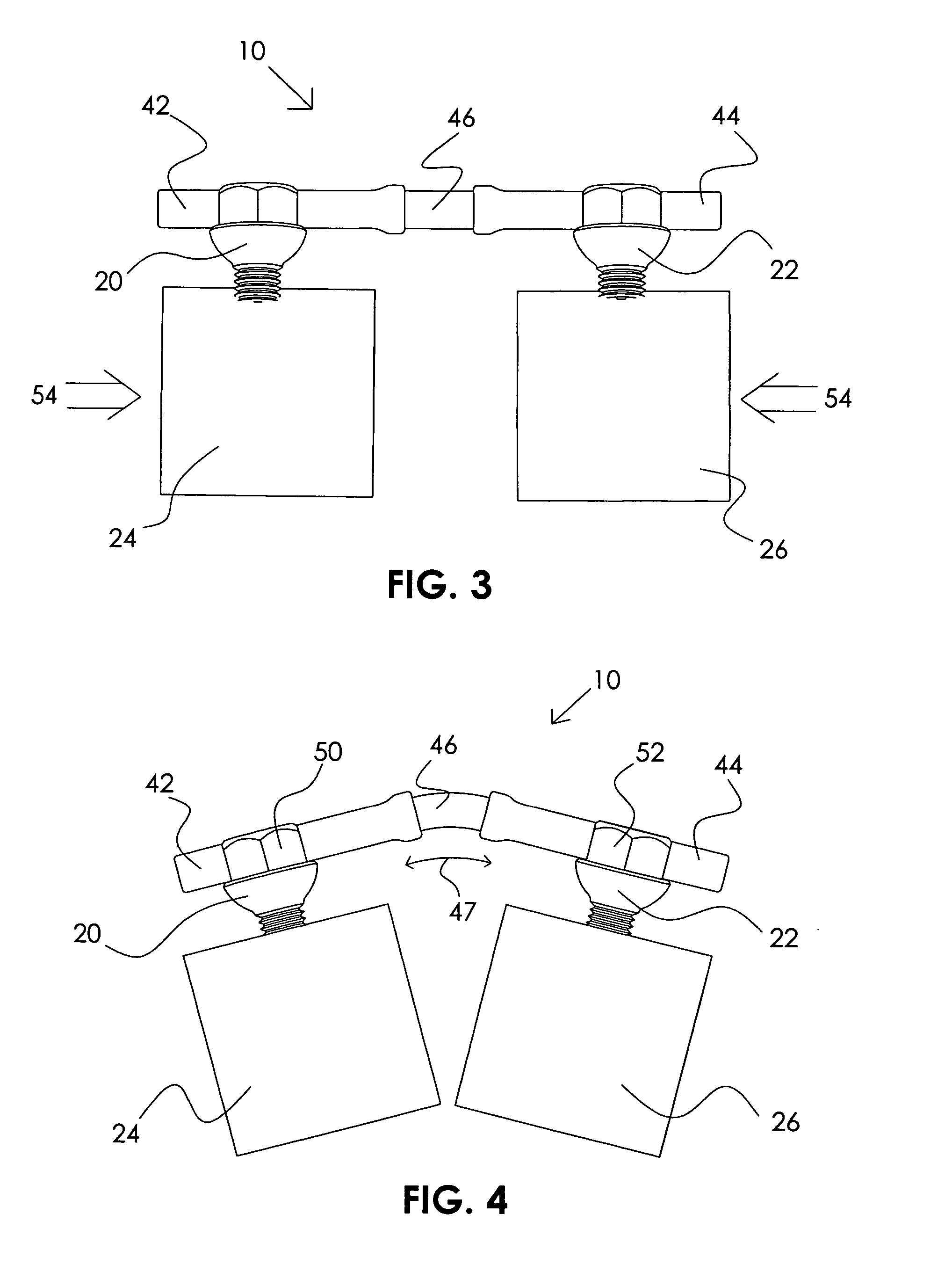Orthopedic stabilization device
a stabilization device and orthopedic technology, applied in the field of orthopedic stabilization devices, can solve the problems of not being able to resist compression or shear loads, long recovery process, and long recovery time, and achieve the effect of restoring normal range of motion and limiting the range of relative motion
- Summary
- Abstract
- Description
- Claims
- Application Information
AI Technical Summary
Benefits of technology
Problems solved by technology
Method used
Image
Examples
Embodiment Construction
[0035] With reference generally to FIGS. 1-10, the Applicant's invention provides flexible spinal stabilization allowing controlled relative vertebral motion for the relief of pain, while preventing intervertebral shear forces. Moreover, the invention evenly distributes mechanical stresses throughout its structure rather than constraining motion within a limited portion of its structure, by virtue of its distinctive design.
[0036] Referring to FIGS. 1 and 2-4, an elongated bridge member is generally shown as an assembly at 10. Assembly 10 includes a ligament 28 shown in the form of a wire. It will be understood that the ligament 28 may also take the form of a tube, solid rod or a band, having different cross sectional shapes and sizes. The ligament 28 is made of an implantable material selected to be inelastic at body temperature and allows relative constrained motion while resisting bodily shear forces. The ligament 28 has opposed first 30 and second 32 ends received within washer ...
PUM
 Login to View More
Login to View More Abstract
Description
Claims
Application Information
 Login to View More
Login to View More - R&D
- Intellectual Property
- Life Sciences
- Materials
- Tech Scout
- Unparalleled Data Quality
- Higher Quality Content
- 60% Fewer Hallucinations
Browse by: Latest US Patents, China's latest patents, Technical Efficacy Thesaurus, Application Domain, Technology Topic, Popular Technical Reports.
© 2025 PatSnap. All rights reserved.Legal|Privacy policy|Modern Slavery Act Transparency Statement|Sitemap|About US| Contact US: help@patsnap.com



